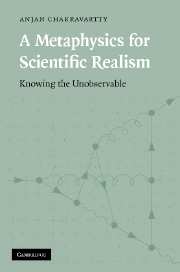Chapter 8 - Approximate truths about approximate truth
Published online by Cambridge University Press: 22 September 2009
Summary
Knowledge in the absence of truth simpliciter
I began this book with the question of what scientific realism is, suggesting in the first chapter a very rough first draft of an answer: it is the view that our best scientific theories give approximately true descriptions of both observable and unobservable aspects of a mind-independent world. In the many pages since then, I have attempted to refine this answer in several ways. In response to the further question of what more precisely a sophisticated realist should believe in, I laid out an account of causal properties, concrete structures, and particulars described by theories under epistemically favourable conditions. In response to the challenge of furnishing a coherently integrated understanding of the key metaphysical concepts commonly associated with realism, I developed a unified picture of causal processes, laws, and kinds, in support of semirealism. And in response to the question of how exactly the realist should cope with the facts that human beings are fallible, and that epistemic conditions are often far from favourable, I have suggested throughout that plausible forms of realism are generally selective with respect to the parts of theories they endorse for belief, and that their commitment to even these parts is inevitably graded, reflecting a range of degrees of causal contact with the properties and structures they putatively concern.
- Type
- Chapter
- Information
- A Metaphysics for Scientific RealismKnowing the Unobservable, pp. 212 - 234Publisher: Cambridge University PressPrint publication year: 2007



